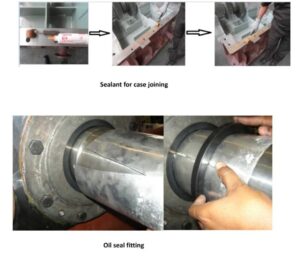Mobile:+86-311-808-126-83
Email:info@ydcastings.com
cast iron impeller
The Benefits and Applications of Cast Iron Impellers
Cast iron impellers play a crucial role in various industrial applications, particularly in the realm of fluid dynamics. These components are essential in pumps, fans, and other machinery that require the movement of liquids or gases. The use of cast iron for impellers offers several advantages, making it a preferred choice in various engineering applications.
Durability and Strength
One of the primary benefits of cast iron impellers is their exceptional durability. Cast iron is known for its high tensile strength and resistance to wear, which is vital in environments where impellers are exposed to abrasive materials or harsh conditions. The robust nature of cast iron ensures that these components can withstand significant stress and strain during operation. This durability translates into a longer lifespan for the impellers, reducing the frequency of replacements and maintenance costs.
Corrosion Resistance
Another significant advantage of cast iron impellers is their ability to resist corrosion. While cast iron may not be as resistant to corrosion as stainless steel, modern advancements have led to the development of various coatings and treatments that enhance its corrosion resistance. This feature is essential in applications involving corrosive fluids or environments, such as wastewater treatment plants or chemical processing facilities. By employing cast iron impellers in these settings, industries can minimize the risk of failure due to corrosion-related damage.
Cost-Effectiveness
From a financial perspective, cast iron impellers present a cost-effective solution compared to other materials. The production process for cast iron components is relatively economical, and the raw material costs are lower than those for more advanced alloys or synthetic materials. Furthermore, the long lifespan and durability of cast iron impellers contribute to reduced maintenance and replacement costs over time. For many companies, investing in cast iron impellers means gaining excellent performance without incurring excessive expenses.
cast iron impeller

Versatility in Applications
The versatility of cast iron impellers extends to a wide variety of applications. They are employed in several industries, including horticulture, petrochemical, and food processing. In horticulture, for instance, cast iron impellers are commonly found in water pumps, facilitating the efficient movement of irrigation water. In the petrochemical industry, they are essential for transporting various fluids, while in food processing, their robustness ensures that hygiene and durability requirements are met effectively. This versatility makes cast iron impellers suitable for both high-volume industrial applications and smaller-scale operations.
Manufacturing and Design Flexibility
The manufacturing process for cast iron impellers allows for significant design flexibility. Engineers can create impellers with specific geometries and performance characteristics tailored to particular applications. This customization can enhance the efficiency of fluid movement, improving the overall performance of the machinery. Advanced casting techniques also enable manufacturers to produce intricate designs that may be challenging to achieve with other materials. As such, the design and manufacturing capabilities associated with cast iron impellers are advantageous for various engineering needs.
Environmental Considerations
Lastly, cast iron is a recyclable material, making it an environmentally friendly option compared to some synthetic materials. As manufacturers and industries focus more on sustainability, the ability to recycle and reuse cast iron components aligns well with eco-conscious practices. This consideration not only helps in reducing waste but also supports a circular economy, making cast iron impellers a sustainable choice for modern engineering.
Conclusion
In summary, cast iron impellers offer a myriad of benefits, including durability, corrosion resistance, cost-effectiveness, versatility, and manufacturing flexibility. Their wide range of applications across various industries underscores their importance in modern engineering and fluid dynamics. With advancements in technology enhancing the properties of cast iron, its relevance is expected to rise, solidifying its place as a preferred material for impellers in the future.
-
Why Should You Invest in Superior Pump Castings for Your Equipment?NewsJun.09,2025
-
Unlock Performance Potential with Stainless Impellers and Aluminum End CapsNewsJun.09,2025
-
Revolutionize Your Machinery with Superior Cast Iron and Aluminum ComponentsNewsJun.09,2025
-
Revolutionize Fluid Dynamics with Premium Pump ComponentsNewsJun.09,2025
-
Optimizing Industrial Systems with Essential Valve ComponentsNewsJun.09,2025
-
Elevate Grid Efficiency with High-Precision Power CastingsNewsJun.09,2025











